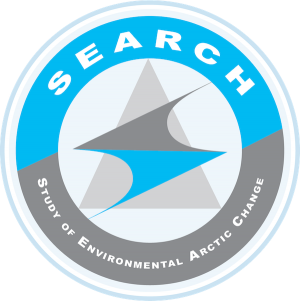By: Brendan P. Kelly, SEARCH Executive Director
What understanding is needed to inform Arctic decision-making through 2050?
How can scientists better understand and contribute to Arctic policy conversations?
How might unexpected events or trends in the Arctic substantially alter policy needs by 2050?
What research is needed to avoid unmanageable change in the Arctic?
Arctic Futures 2050 will address these questions through a scenarios workshop in 2018 and a larger, open meeting of Arctic scientists and policymakers in 2019. The immediate products will include descriptions of research—jointly produced by scientists and policy staff—needed to inform Arctic policy. The longer-term outcome will be effective and iterative collaborations of scientists and policymakers.
Arctic environments are transitioning rapidly to uncertain states, and decision-makers must respond with policies informed by scientific understanding. The Study of Arctic Environmental Change (SEARCH) facilitates cross-disciplinary syntheses to improve our current scientific understanding of Arctic environments and communicates that understanding to policymakers through briefings and roundtables (see the Arctic Answers webpage). SEARCH recognizes that future scientific understanding of the Arctic will be shaped by the research questions that we ask now, and the utility of the answers for policymaking will be enhanced by early and iterative conversations between researchers and policy staff. In Arctic Futures 2050, SEARCH and its partners will convene a scenarios workshop to frame research needs in policy terms that will then inform a larger meeting in which scientists and policy staff will develop recommendations for future research.
SEARCH welcomes partners in the scientific and decision-making communities to plan and convene Arctic Futures 2050. Co-producing answers to important questions about the changing Arctic will help break down communication barriers and ensure that the scientific community can meet the needs of decision-makers.
Further information about SEARCH Action Teams and related products is available on the SEARCH website.
Or, contact Brendan P. Kelly, SEARCH Executive Director (bpkelly [at] alaska.edu).
